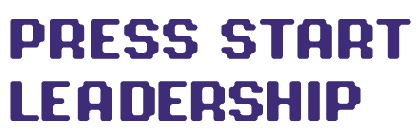Beyond the Code: Innovative Techniques for Fostering Teamwork in Game Development
In the multifaceted world of video game development, successful team collaboration is the linchpin that turns visionary ideas into immersive gaming experiences. This extensive guide delves into the art and science of team collaboration within the video game industry, outlining innovative techniques and best practices that can elevate the way game development teams work together.
The Importance of Team Collaboration in Game Development
In an industry where creativity, technology, and storytelling intersect, effective team collaboration is essential. It’s the collaborative effort that brings together diverse skills and perspectives to create compelling and successful games.
The Multidisciplinary Nature of Game Development: Game development involves a range of disciplines, from programming and graphic design to storytelling and sound design. Collaboration across these disciplines is crucial for ensuring a cohesive and high-quality end product.
Benefits of Effective Collaboration: When teams collaborate effectively, it leads to increased creativity, faster problem-solving, better decision-making, and a more enjoyable work environment, which in turn leads to higher quality games.
Setting the Stage for Collaboration
Creating an environment that fosters collaboration is the first step in cultivating a successful team. This involves both the physical workspace and the team culture.
Designing Collaborative Workspaces: Physical and virtual workspaces should encourage interaction and teamwork. This can range from open-plan offices to collaborative online platforms that facilitate communication and idea sharing.
Cultivating a Collaborative Culture: Develop a studio culture that values and encourages collaboration. This includes promoting open communication, mutual respect, and an understanding that every team member’s contribution is valuable.
Communication Techniques for Effective Teamwork
Clear and effective communication is the backbone of collaboration. In the video game industry, where projects are complex and timelines tight, mastering communication techniques is critical.
Regular Meetings and Check-Ins: Hold regular meetings to discuss progress, address challenges, and plan ahead. This could include daily stand-ups, weekly team meetings, and monthly all-hands meetings.
Utilizing Communication Tools: Leverage technology to enhance communication. Tools like Slack, Discord, or Microsoft Teams can facilitate real-time communication, while project management software like Trello or JIRA can help keep everyone aligned on tasks and deadlines.
Collaboration Techniques in the Creative Process
Collaboration in the creative aspects of game development is where the magic happens. It’s where ideas are born, refined, and brought to life.
Brainstorming and Ideation Sessions: Conduct regular brainstorming sessions to generate and develop ideas. Use techniques like mind mapping or SCAMPER to stimulate creative thinking.
Prototyping and Feedback Loops: Create prototypes early and iterate based on team feedback. This approach allows team members from different disciplines to contribute their expertise and refine the game’s design and functionality.
Managing Team Dynamics and Resolving Conflicts
In any team, especially in one as diverse as a game development team, managing dynamics and resolving conflicts is key to maintaining a collaborative environment.
Understanding Team Dynamics: Be aware of the different personalities and work styles within your team. Use this understanding to manage interactions and create balanced, complementary teams.
Conflict Resolution Strategies: Develop strategies for resolving conflicts, such as active listening, mediation, or structured problem-solving sessions. Address conflicts early to prevent them from escalating and impacting team morale.
Leveraging Diverse Skills and Perspectives
The diversity of skills and perspectives in a game development team is one of its greatest strengths. Leveraging this diversity can lead to more innovative and well-rounded games.
Cross-Functional Collaboration: Encourage collaboration between different functional areas. For instance, designers working closely with developers or writers can lead to more integrated and seamless game experiences.
Valuing Diverse Perspectives: Foster an environment where different perspectives are valued and considered. This includes encouraging input from all team members, regardless of their role or seniority.
Implementing Agile Methodologies
Agile methodologies, with their focus on flexibility, iterative development, and team collaboration, can be particularly effective in game development.
Adopting Agile Practices: Implement Agile practices like Scrum or Kanban. These methodologies emphasize teamwork, regular feedback, and adaptability, which are crucial in the fast-paced world of game development.
Sprint Planning and Reviews: Use sprints – short, focused development cycles – to plan and execute work. Regular sprint reviews and retrospectives can help the team reflect on their collaboration and continuously improve.
Building and Sustaining High-Performing Teams
The goal of collaboration techniques is not just to complete tasks, but to build and sustain high-performing teams that can consistently deliver exceptional results in the dynamic environment of game development.
Team Building and Trust: Invest in team-building activities that foster trust and camaraderie. Trust is the foundation of effective collaboration, enabling team members to communicate openly and rely on each other’s strengths.
Nurturing Team Morale and Motivation: Maintain high team morale and motivation through recognition, celebrating milestones, and providing opportunities for professional growth. A motivated team is more likely to collaborate effectively and contribute creatively.
Utilizing Collaborative Technology Tools
In an era where teams may be distributed or working remotely, leveraging the right technology tools is key to facilitating collaboration.
Choosing the Right Collaboration Tools: Select tools that best fit the needs of your team and project. This might include version control systems like Git, collaborative design tools like Figma or Adobe XD, and virtual whiteboards for brainstorming.
Integrating Tools into Workflow: Seamlessly integrate these tools into your team’s workflow. Ensure that all team members are trained and comfortable using them, and that they enhance rather than hinder the collaborative process.
Effective Project Management for Collaboration
Effective project management is crucial for ensuring that collaborative efforts are well-coordinated and contribute to the project’s overall objectives.
Role of a Project Manager in Collaboration: The project manager plays a pivotal role in facilitating collaboration. They should ensure clear communication, align team efforts with project goals, and manage resources effectively.
Using Project Management Methodologies: Implement project management methodologies that foster collaboration. This includes clear task delegation, maintaining a project timeline, and using tools like Gantt charts or project dashboards for visibility.
Overcoming Collaboration Challenges
Despite the best efforts, collaboration challenges such as miscommunication, misalignment of goals, or workflow disruptions can arise. Addressing these proactively is essential.
Identifying and Addressing Barriers: Regularly assess and address barriers to collaboration. This might involve modifying communication channels, clarifying roles and responsibilities, or revisiting team goals.
Fostering a Problem-Solving Attitude: Encourage a problem-solving attitude within the team. Equip them with the skills and mindset to collaboratively tackle challenges as they arise.
Measuring the Effectiveness of Collaboration
To continuously improve collaboration within the team, it’s important to measure its effectiveness and make data-driven improvements.
Setting Collaboration Metrics: Define metrics that help measure the effectiveness of collaboration. These could include the number of collaborative projects completed, team satisfaction scores, or the quality and innovation of outcomes.
Regular Reviews and Feedback: Conduct regular reviews and solicit feedback from the team on collaborative processes. Use this feedback to make informed adjustments to improve team collaboration.
Maintaining Collaboration in a Changing Industry
The video game industry is constantly evolving, and maintaining effective collaboration through these changes is crucial for sustained success.
Adapting to Industry Trends: Stay informed about industry trends and shifts, such as new gaming platforms or changes in consumer behavior, and adapt your collaboration strategies accordingly.
Preparing for Future Collaboration Needs: Anticipate future collaboration needs based on industry evolution. This might involve investing in new tools, training for emerging technologies, or reorganizing teams to better align with future projects.
Final Thoughts:
Effective team collaboration is a critical component of success in the video game industry. By embracing various collaboration techniques, leveraging technology, managing projects effectively, and continuously adapting to industry changes, leaders can cultivate an environment where creativity thrives and productivity soars. The techniques and strategies discussed in this guide provide a roadmap for enhancing team collaboration, driving innovation, and ultimately achieving success in the complex and exciting world of video game development.
Thank you for reading this article to the end. I hope it has been informative and helpful. If you’d like to learn more about the topics we covered, I invite you to check out my podcast and my YouTube channel where I delve into these subjects in more depth.
Additionally, I would love to stay in touch and keep you updated on all the latest developments and insights in the world of leadership. That’s why I encourage you to sign up for my newsletter. Not only will you receive regular updates, but as a thank you for joining, I will also send you my free eBook, “5 Heroic Leadership Skills.” This eBook is packed with practical tips and strategies that will help you take your leadership skills to the next level.
So don’t wait! Sign up for my newsletter today and start your journey towards becoming a more effective and inspiring leader. I can’t wait to hear from you.
Work With Me!
If you’re on the quest to elevate your team’s leadership, production, or game design capabilities, I’m here to assist! Leveraging extensive experience and a strategic approach, I offer personalized audits, bespoke workshops, and leadership retreat facilitation to drive your team toward excellence. My commitment is to provide efficient, reliable, and proven support, ensuring you have the tools and insights needed to thrive. Ready to unlock your team’s full potential and achieve unparalleled success? Don’t hesitate—Press Start on your journey to transformation today! Feel free to reach out directly to discuss how we can tailor a solution to meet your unique needs and goals. Let’s connect and take your team’s performance to the next level!
🔗 www.pressstartleadership.com
📧 contact@pressstartleadership.com


